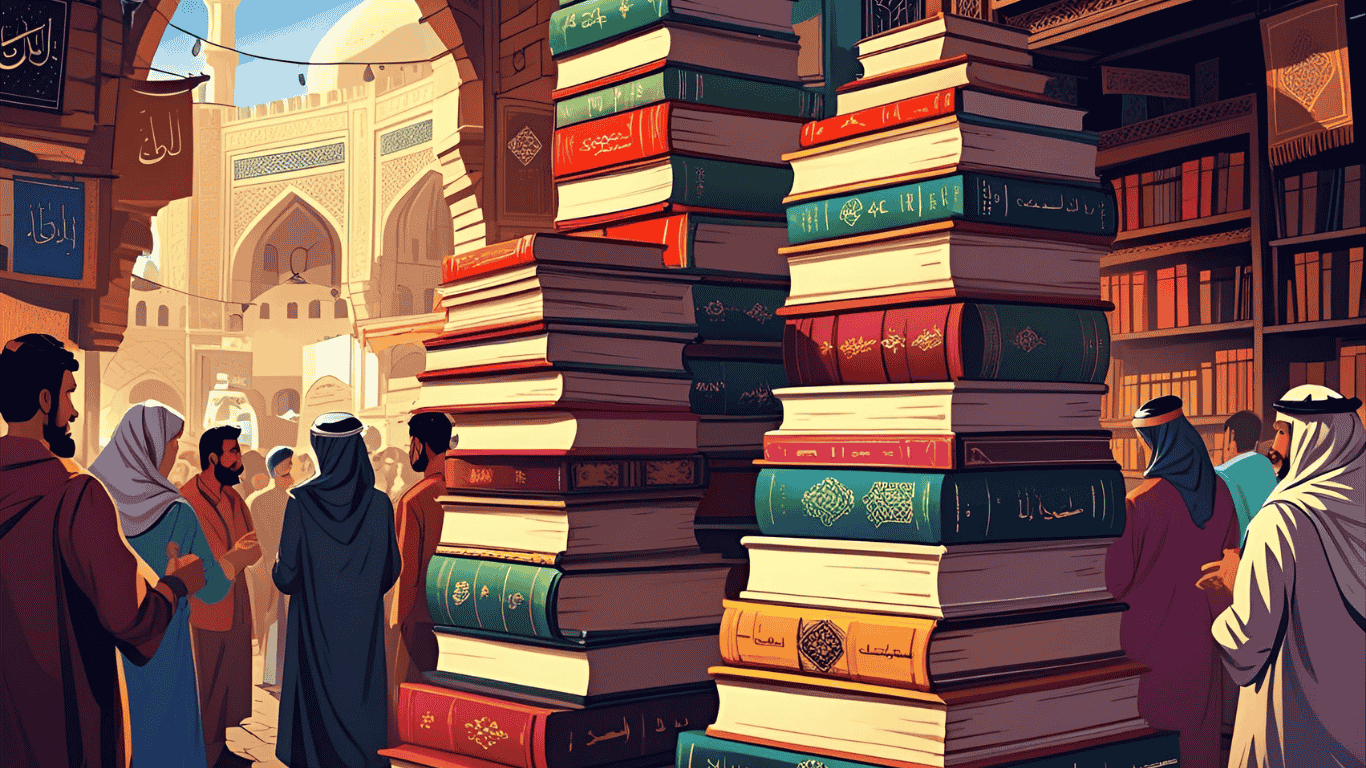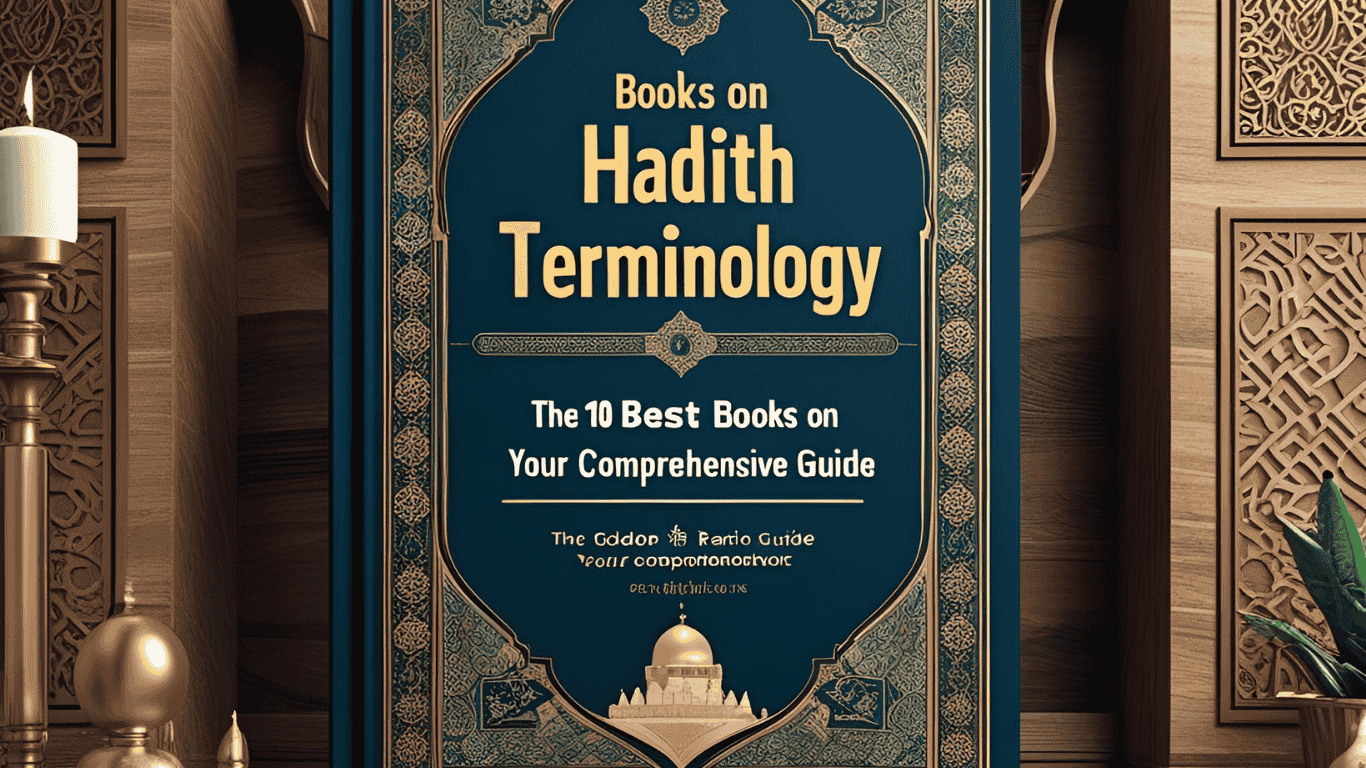Blog details
Islamic history is a vibrant record of a great nation, narrating the story of a civilization that illuminated humanity’s paths with its values and achievements. Studying this history is not limited to knowing the past; it is a rich journey that provides a deep understanding of Islamic societies and their impact on the world. Islamic history books serve as mirrors reflecting this noble heritage, carrying within their pages stories of heroes, major events, and transformations that shaped Islamic civilization through the ages.
The Importance of Studying Islamic History
Studying Islamic history offers readers a comprehensive view of the emergence and development of the Islamic state. It opens horizons to understand the nature of challenges faced by the state and how it overcame them. Through this study, lessons and insights can be drawn, strengthening the religious and cultural identity of the contemporary Muslim.
The Role of Islamic History Books in Transmitting Civilization and Values
Islamic history books are the most important medium for transmitting Islamic values and principles across generations. They preserve the collective memories of the nation and safeguard its intellectual and cultural heritage. These books narrate events that enhance pride and belonging, highlighting lessons of wisdom and patience in facing hardships.
Definition and Objectives of Islamic History Books
Islamic history books are works aimed at documenting and interpreting the events experienced by the Islamic world, focusing on analyzing facts and linking them to Islamic values. These books seek to educate new generations about their nation’s history scientifically, clarifying achievements and challenges.
Types of Islamic History Books: Between Narrative and Documentation
They range from books offering engaging narratives, such as “Youth of Islam” (Fityan Al-Islam) which depicts stories of youth at the beginning of the Islamic call, to meticulous documentary books like “Battles of the Caliphs” (Muqatil Al-Khulafa) that chronicle wars during the caliphate eras.
Development Stages of Writing Islamic History
Prophetic Era and the Rightly Guided Caliphs
Historical recording began during this phase through oral accounts and simple but precise documentation.
Umayyad and Abbasid Periods
This phase witnessed expansion in historiography, with works like “Why Did the Umayyad State Fall?” analyzing the historical causes behind the fall of this dynasty, reflecting deep critical thinking.
Later Islamic Eras
This period saw a new historical renaissance focusing on social and political conditions, with detailed studies such as “The Ottoman State” documenting the empire’s development and impact.
Famous Islamic Historians and Their Works
-
Al-Tabari and his comprehensive history, a fundamental reference in Islamic historiography.
-
Ibn Kathir known for his accuracy in blending religious narrative and scientific documentation.
-
Al-Masudi who combined history with geography.
-
Ibn al-Athir, who provided deep critical analysis of events.
Classifications of Islamic History Books
-
General history books like “Palestine: The Illustrated History” which offers a comprehensive and visually engaging narrative of Palestine’s history.
-
Biographies such as “The Works of Al-Farooq after His Martyrdom” documenting the life and aftermath of the companion Umar ibn Al-Khattab.
-
Books on wars and Islamic battles like “Battles of the Caliphs.”
-
Social and economic history books shedding light on Muslim daily life.
Sources Relied upon by Islamic History Books
-
Primary sources: The Quran and the Prophetic Sunnah.
-
Secondary sources: Narratives and historical hadiths.
-
Historical documents and archaeological artifacts.
Methodologies Used in Writing Islamic History
-
Narrative and detailed description.
-
Critical analysis and comparison of different narrations.
Importance of Islamic History Books in Understanding Islamic Civilization
-
Tracing the foundation and development of the Islamic state.
-
Exploring cultural aspects and customs.
-
Discovering scientific and intellectual achievements.
Islamic History Books and Their Impact on Islamic Identity
-
Cementing religious and national values.
-
Enhancing pride in the glorious Islamic history.
-
Shaping cultural awareness.
Islamic History Books for Different Historical Periods
-
Early Islamic history, such as “Atlas of Islamic Conquests” which maps and highlights Islamic expansion.
-
Medieval Islamic history.
-
Modern and contemporary Islamic history, with emphasis on the Ottoman state.
Famous Translated Islamic History Books
-
The impact of translations in spreading Islamic culture worldwide.
Islamic History Books for Children and Youth
-
Educational initiatives like “Youth of Islam” aimed at delivering history in a simple and engaging manner.
Challenges Facing Islamic Historiography
-
Bias and difficulty accessing accurate sources.
-
Handling controversial events.
The Role of Technology in Developing Islamic History Books
-
Digitization and archiving manuscripts.
-
Using multimedia in spreading Islamic history.
Islamic History Books and Academic Studies
-
Adoption of these books as university references.
-
Critical studies and source analysis.
Islamic History Books in Libraries and Research Centers
-
Libraries holding precious collections of manuscripts.
How to Choose Suitable Islamic History Books
-
Criteria for selection based on purpose.
-
Distinguishing reliable sources from inaccurate works.
Political and Social Impact of Islamic History Books
-
Using history in political discourse.
-
Their influence on relations between Islamic and non-Islamic peoples.
Islamic History Books and Historical Jurisprudential Fatwas
-
The overlap between history and Islamic jurisprudence.
-
Understanding legal rulings in their historical context.
The Future of Islamic History Books
-
Modern trends in historiography.
-
Integrating comparative studies.
-
Importance of innovation in transmitting Islamic history.
Conclusion
Books of Islamic history, including works like “Palestine: The Illustrated History”, “Battles of the Caliphs”, “Why Did the Umayyad State Fall?”, “The Works of Al-Farooq after His Martyrdom”, “Youth of Islam”, “Atlas of Islamic Conquests”, “The Ottoman State”, and “Great Figures Who Embraced Islam”, represent a vital lifeline of Islamic civilization. They form a bridge connecting past, present, and illuminating the path to the future, remaining an inexhaustible source of knowledge and profound understanding.

 Your guide to the best books o...
Your guide to the best books o...
 How do you get free e-books?
How do you get free e-books?
 Your guide to reading various...
Your guide to reading various...
 Download books for free: A com...
Download books for free: A com...